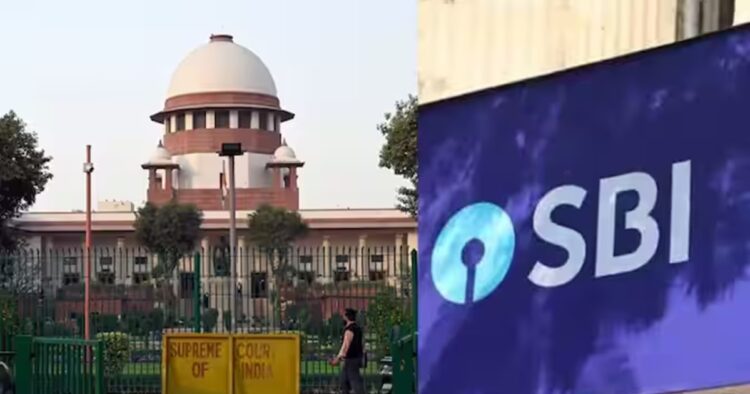Following the Supreme Court’s rejection of the State Bank of India’s request for more time to disclose details about donors and recipients of electoral bonds, the bank has now provided the data to the Election Commission of India. This move comes after the Supreme Court’s order on March 11, reiterating its February 15 judgment that deemed the electoral bond scheme unconstitutional.
In compliance with the court’s directive, SBI submitted a pen drive containing data on electoral bonds to the Election Commission on Tuesday evening. This data includes specifics such as the date of purchase, the name of the buyer, the denomination of the bond, as well as details of each bond redeemed by political parties, including the date of encashment and the denomination of the bond.
It remains unclear whether SBI also submitted any physical files to the Election Commission. Additionally, there is ambiguity surrounding whether the data provided by SBI includes the unique hidden alphanumeric number associated with each bond, which can potentially be used to link purchases to the political parties redeeming them.
During court proceedings, Senior Advocate Harish Salve, representing SBI, explained that the bank had interpreted the court’s instructions as requiring the matching of donor and bond details with details of encashment by political parties. SBI cited logistical challenges in performing this matching process, as the donor data and redemption data are stored separately. Furthermore, SBI mentioned that certain details, such as bond numbers, are stored digitally while others, such as purchaser names and KYC details, are stored physically, making comprehensive data gathering difficult.
The Supreme Court emphasized the need for transparency in the disclosure process, indicating that the bank’s interpretation did not align with the court’s directives. Chief Justice DY Chandrachud remarked that the court had not requested a matching exercise but rather a straightforward disclosure of information.
In response to the court’s directives, the Election Commission is now tasked with compiling and publishing the electoral bond data on its website by 5 pm on March 15. Additionally, the poll body may seek the return of sealed covers containing bond redemption data submitted by political parties, which were previously submitted to the Supreme Court in compliance with earlier orders.
The submission of electoral bond data marks a significant development in the ongoing legal battle surrounding the transparency and constitutionality of the electoral bond scheme, shedding light on the flow of funds to political parties and their sources of funding.

















Comments